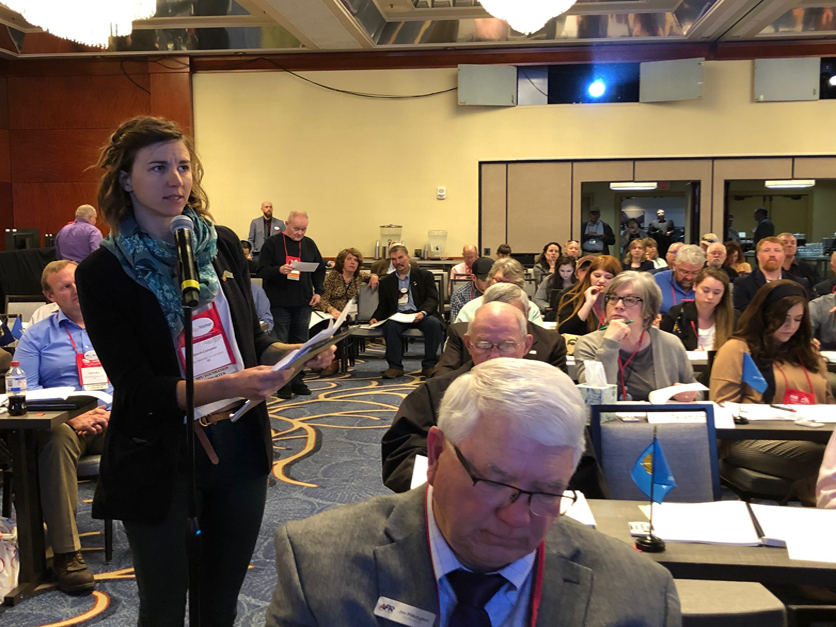Delegates of the National Farmers Union adopted policy calling for the development of permanent disaster programs rather than ad hoc ones like the Market Facilitation Program.
“The theme there is certainty,” NFU President Rob Larew told reporters at the close of the NFU’s annual convention in Savannah, Georgia Tuesday.
Larew said there have always been questions about whether Congress can cover the “disaster of the day” whether that includes trade disasters, economic disasters or weather disasters.
“The idea of something that is there and provides certainty I think would be useful for any farmer to go to their banker to see if they can plan out the year and stay in business,” Larew noted.
He also argued USDA should include Congress in future discussions if it is going to develop a third MFP program this year. He also wants to see a change in the payment formula.
“These formulas sometimes have felt like they had to be backfilled and there was a number set and how can we do this in such a way that it can appear to be justified,” Larew stated.
Interested in more coverage and insights? Receive a free month of Agri-Pulse or Agri-Pulse West by clicking here.
Nearly 200 NFU delegates also approved five other provisions that will guide their government affairs priorities this next year.
The policies included support to bolster climate research, engagement in the 2020 election, calling on Congress to establish a mandatory program for managed growth based on market demand and price stability in the dairy sector, support cooperatives, and truth in labeling for meat products.
An extra proposal was introduced on the floor by a Missouri Farmers Union member, the Family Farmer’s Bill of Rights, but after several minutes of debate another member motioned to postpone the item.
The group also added language to their 2020 NFU policy book and one specific change supported eliminating small refinery waivers that are “circumventing the RFG standards that are now in law and reallocate the four billion plus gallons lost due to the small refinery waivers given by the EPA.”


